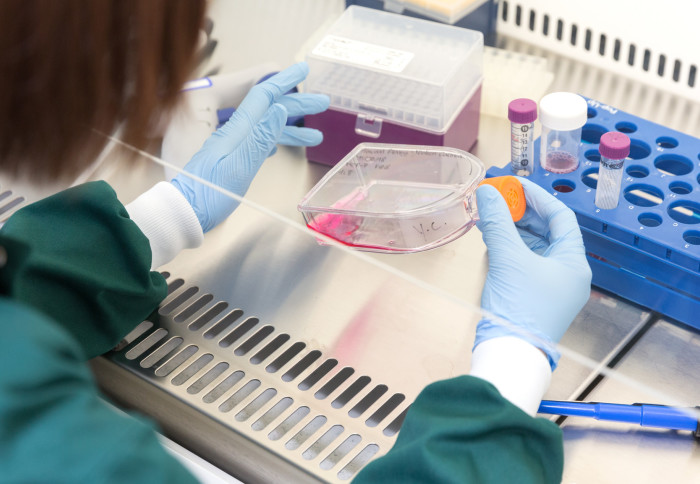New Unit to advance cancer prevention research and strategies
by Maxine Myers

A new Unit focusing on cancer prevention research and strategies has launched at Imperial and The Institute of Cancer Research, London.
The Cancer Epidemiology and Prevention Unit (CEPRU) is a joint initiative between Imperial College London and The Institute of Cancer Research. Its vision is to be a global leader in advancing research on the causes of cancer and implementing effective primary prevention strategies through collaborations.
The CEPRU was launched at an online event which took place earlier this week. The event featured presentations from experts at institutions around the world about the Unit’s aims, the global challenges facing the translation of research findings on the causes of cancer into effective prevention strategies, and opportunities for collaborations to overcome current limitations in understanding the mechanisms and causes of many cancers.
Understanding cancer and its causes
We endeavour to develop innovative, multidisciplinary and largely collaborative strategies to tackle the yet unknown mechanisms and causes of cancer. Professor Elio Riboli Founding Director of the CEPRU and Chair in Cancer Epidemiology and Prevention in the School of Public Health at Imperial College London
Professor Elio Riboli, Founding Director of the CEPRU and Chair in Cancer Epidemiology and Prevention in the School of Public Health at Imperial College London, said: “We have made significant progress over the years to advance our understanding of cancer and its causes. This has led to successful interventions to reduce exposure in the population to cancer risk factors such as smoking and environmental chemicals in workplaces. However, we haven’t been equally successful in translating a number of well-known cancer risks factors, such as excessive alcohol consumption and unhealthy diets into effective cancer prevention strategies
We also face the challenge of not knowing the causes of around 40-50 per cent of the cancers occurring in UK and around the world.
We endeavour to develop innovative, multidisciplinary and largely collaborative strategies to tackle the yet unknown mechanisms and causes of cancer. This knowledge is essential to provide the scientific bases for further public health advancement in primary disease prevention and population health promotion so that we can reduce the number of people who will develop cancer in the decades to come.”
Professor Richard Houlston, Professor of Population and Molecular Genetics at The Institute of Cancer Research, London, and co-founder of the CEPRU, said:
“Our new centre will combine the expertise of leading researchers in cancer epidemiology and prevention at two of the UK’s leading scientific institutions. In developing new, exciting research programmes and challenging scientists to look at cancer prevention and epidemiology in new ways, it aims to generate new strategies to both diagnose cancer earlier and prevent it altogether.”
Cancer progress
There has been substantial progress on understanding the causes of cancer and around 50 to 60 per cent of all cancers are attributed to known causes. This increased understanding has led to important advances in the prevention of some cancers. For example, the reduction of smoking in the UK has led to a major fall in lung cancer cases in men.
However, despite knowing the risk factors for many cancers such as increased alcohol consumption we have seen only limited translation into effective prevention strategies. In addition, the causes of some cancers such as prostate are still unknown.
Translational cancer research
The aim of the Unit is to lead translational cancer research conducted in the UK and internationally. The researchers hope to achieve this by bringing a critical mass of cancer epidemiologists, biostatisticians and population health scientists in Imperial’s School of Public Health together with experts from the ICR in cancer epidemiology, cancer biology and genetics, and oncology. They will conduct research into unknown causes of many cancers and how best to translate what is currently known on cancer causes, ranging from environmental to behavioral and metabolic factors, to effective prevention programmes to increase in physical activity, weight control and reduction of excessive exposure to UV light (melanoma).
The Unit will also focus on the development of further prevention studies in cancer survivors. Around three million people in the UK are living with cancer and this figure is expected to increase by three to four per cent per year due to improvements of cancer treatments and an increasing older population. There is a strong demand by cancer survivors for guidance on how to improve health and reduce the risk of cancer recurrence, as there are no specific guidelines for survivors.
The CEPRU is an example of the work carried out by Imperial College Academic Health Science Centre (AHSC), a University-NHS partnership that aims to accelerate the translation of scientific breakthroughs into improvements in human health.
Article text (excluding photos or graphics) © Imperial College London.
Photos and graphics subject to third party copyright used with permission or © Imperial College London.
Reporter
Maxine Myers
Communications Division